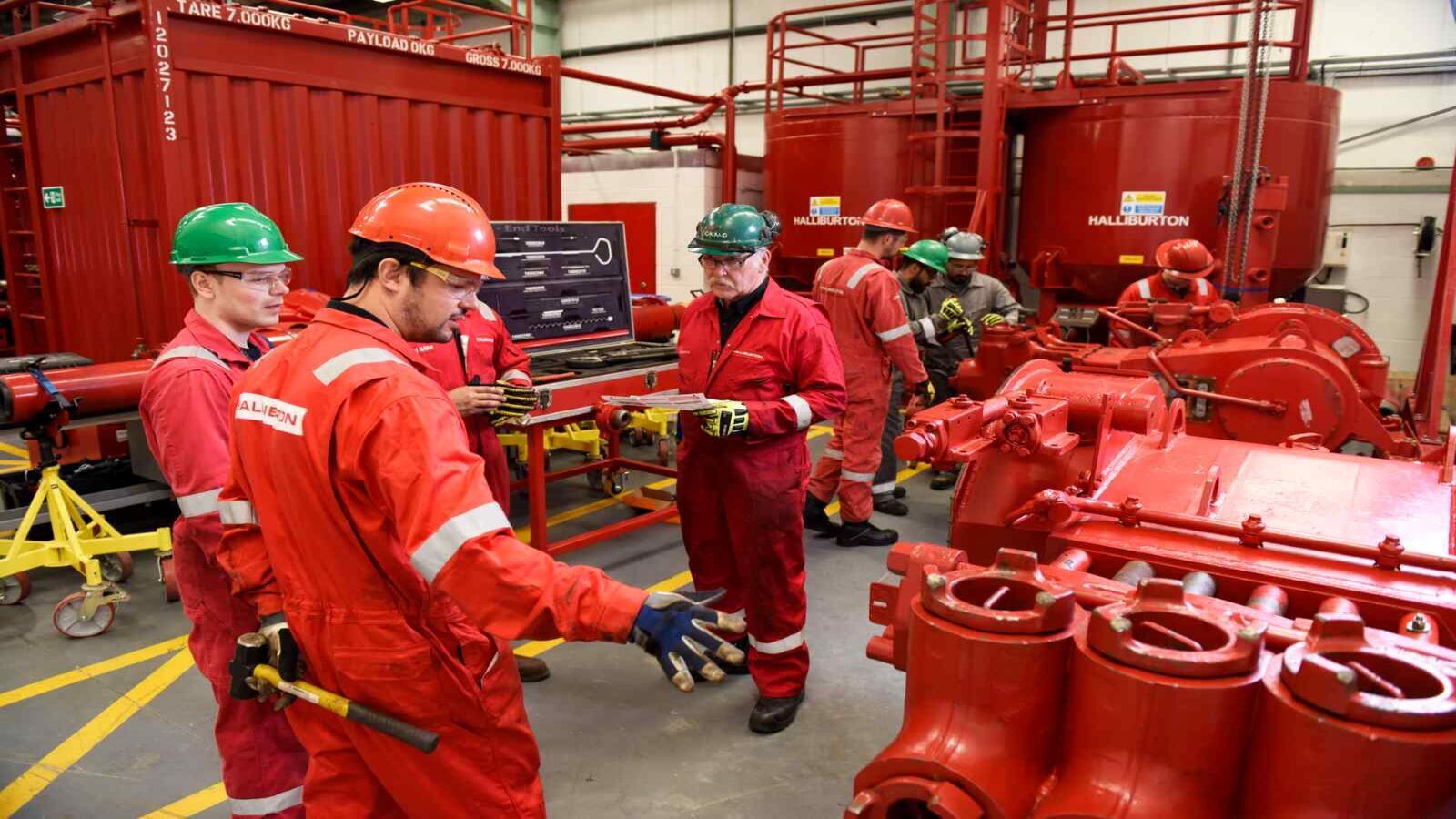Halliburton Company has joined hundreds of other businesses in its boycott against Russia, confirming plans to suspend future business in the country in compliance with transaction prohibition sanctions, the company website reported. The company has also withdrawn itself from Ukraine, citing "sadness" with regards to the people impacted.
“The war in Ukraine deeply saddens us. We have employees in both Ukraine and Russia, and the conflict greatly impacts our people, their families and loved ones throughout the region,” Halliburton Chairman, President and CEO Jeff Miller said. “Since the start of this conflict, we prioritized employee safety and compliance with all relevant sanctions.”
The move puts an end to decades of operations in Russia yet the company continues to do business in China's Xinjiang province, which has been long associated with human rights abuses against the Uyghur people.
The company maintains its long-time dealings in China, including its agreement with SPT Energy Group Inc. affiliate, Petrotech (Xinjiang) Engineering Co., Ltd., established in July 2014, which focused on hydraulic fracturing and production enhancement services in Xinjiang, China, a Halliburton news release said. A new company, Xinjiang HDTD Oilfield Services Co. Ltd., will provide fracture stimulation services, including design and analysis, data acquisition and pumping and chemical services in the Xinjiang Uygur Autonomous Region.
In 1984, the company provided all well completion equipment for the first offshore multi-well platform in China. Two years later, it became the first American company to perform oilfield services in mainland China. In 2012, Halliburton expanded its operations in key unconventional markets including Australia, Saudi Arabia, Mexico and China, a company release said.
In a 2014 press release announcing the venture, Halliburton’s vice president for China, David Zeng, highlighted the potential the region holds for the company.
“Over the next decade there will be great opportunities from the parallel development of conventional and unconventional resources in China,” he said. “SPT’s strong client relationships combined with Halliburton’s technical expertise positions Xinjiang HDTD to be the leading service provider as we develop westward.”
A 2018 report titled “China’s Repression and Internment of Uyghurs: U.S. Policy Responses” highlights some of the human rights violations that the Uyghur population has experienced at the hands of the Chinese Communist Party. "Over a million, and possibly more, Uyghurs have been interned out of a population of 11 million," according to the report. "Credible reports of deaths in custody, torture and systemic political indoctrination must propel the United States into action on behalf of the Uyghurs." In the words of scholar Rian Thum, '"Mass murder and genocide do not look like impossible outcomes."
The report names Halliburton as one of the companies invested in the Xinjiang Uyghur Autonomous Region. The report advises that the committee should "investigate the relationship of U.S.-invested development projects with Chinese state entities implementing extra-legal "de-extremification" measures" and that other countries should be urged to pursue similar measures.
Similarly, a report titled 'Without land, there is no life: Chinese state suppression of Uyghur environmental activism' published by the Uyghur Human Rights Project in August of 2016 names Halliburton as a company that has been wreaking environmental havoc on the Xinjiang region as part of a larger Chinese movement that has removed the Uyghurs' voice in the way their environment is treated.
For the fourth quarter of 2021, the company reported Middle East/Asia revenue to be $1.1 billion, representing a 16% increase. The growth resulted from “higher completion tool sales and wireline activity across the region, improved construction services in Saudi Arabia and Oman, higher software sales in Kuwait and China, improved project management activity in India and increased stimulation activity throughout Asia."
The American multinational corporation considers itself one of the largest oil field service companies in the world. The company employs 50,000 people across more than 700 countries.

